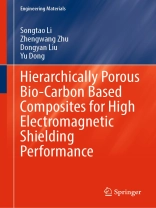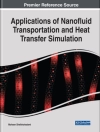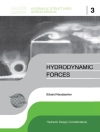This book highlights the preparation and characterization of efficient electromagnetic shielding composites containing bio-carbon derived from natural loofah with unique three-dimensional porous structures by means of entire structure design of composites according to shielding theory. The synergistic effect of multifunctional nanoparticles and bio-carbon on electromagnetic shielding mechanism, mechanical performance, and thermal stability of composites obtained has been holistically investigated. The discovery of this renewable, environmentally friendly, and inexpensive bio-carbon represents a new class of conductive materials with multi-interfaces and unravels further research and development of a wide variety of new electromagnetic shielding material systems with potential commercial applications ranging from electronic devices to energy management.
Jadual kandungan
Chapter 1. Introduction.- Chapter 2. Polyetheretherketone (PEEK)/Graphene/Carbonized Loofah Fiber Composites.- Chapter 3. PEEK/Carbon Nanotube (CNT)/Nickel-Plated Carbonized Loofah Fiber Composites.- Chapter 4. Silicon Carbide Whiskers Coated Carbonized Loofah Sponge.- Chapter 5. MXene Aerogel/CVD Carbon-Coated Carbonized Loofah Sponge Composites.
Mengenai Pengarang
Dr Songtao Li is currently a postdoctoral fellow within Institute of Metal Research, Chinese Academy of Sciences, China. He has a wide spectrum knowledge of materials particularly in carbon nanomaterials (carbonized biomaterials, carbon fibers, and graphene), thermoset/thermoplastic composites, and characterizations in mechanical, electrical, and thermal properties. He has published widely for his dedicated research in Journal of Materials Chemistry A, Carbon, ACS Sustainable Chemistry & Engineering, Composite Part A, etc.
Dr Zhengwang Zhu is a professor in Institute of Metal Research, Chinese Academy of Sciences, China. He obtained a Ph.D. in materials science from Institute of Metal Research, Chinese Academy of Sciences, and did his postdoctoral research at Institute for Materials Research, Tohoku University, Japan. His current research interests include Fe-based amorphous alloys used for decolorizing printing and dyeing wastewater, bulk metallic glass compositescontaining in-situ formed dendrites, as well as dual-phase high entropy alloys. He published over 100 papers in peer-reviewed international journals and filed more than 60 patents.
Dr Dongyan Liu is an associate professor in Institute of Metal Research, Chinese Academy of Sciences, China. Her research interest covers metallic alloys, ceramics, and polymers/composites. She currently focuses on nanocellulose/graphene interaction and their functionalized nanocomposites, natural fiber-reinforced polymer composites. She has authored/coauthored over 40 peer-reviewed journal papers and 5 chapters.
Dr Yu Dong is a senior lecturer in Mechanical Engineering, School of Civil and Mechanical Engineering at Curtin University, Australia. He has extensive research expertise in polymer nanocomposites, electrospun nanofibers, green composites, micromechanical modeling, nanomanufacturing, and design of experiments. He is Lead Editor for’Manufacturing, Characterisation and Properties of Advanced Nanocomposites, ‘ MDPI, Switzerland, and ‘Fillers and Reinforcements for Advanced Nanocomposites, ‘ Elsevier, UK, and Sole Editor for ‘Nanostructures: Properties, Production Methods and Applications, ‘ NOVA Science Publishers, USA. He is Associate Editor for Journals of Frontiers in Materials (Polymeric and Composite Materials section) and Applied Nanoscience.












